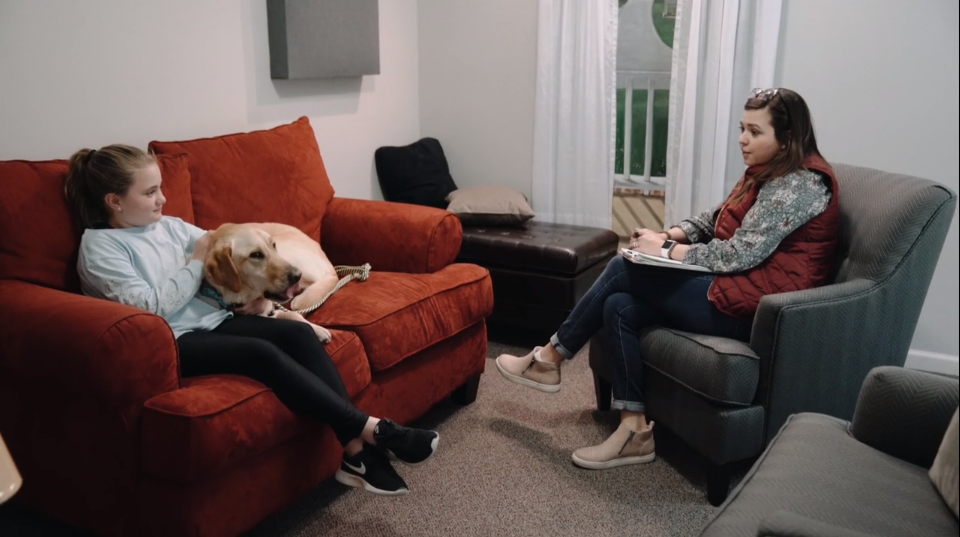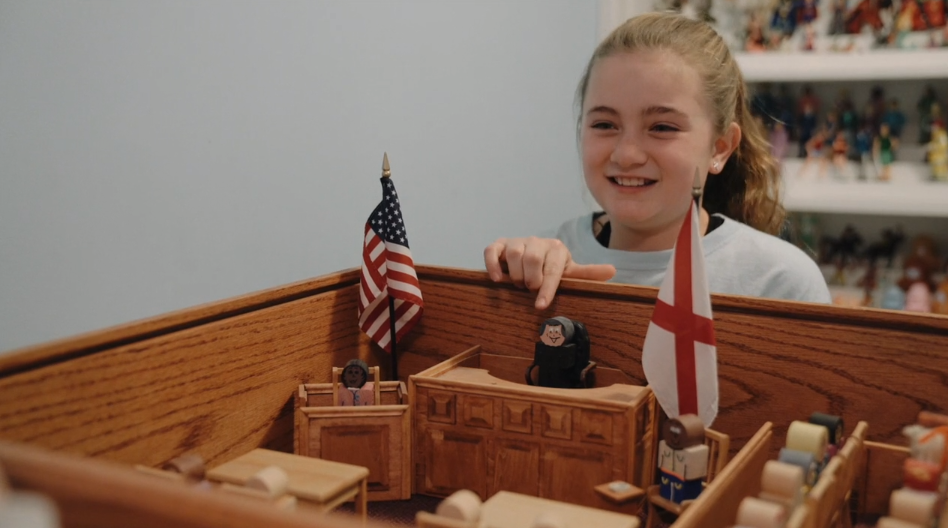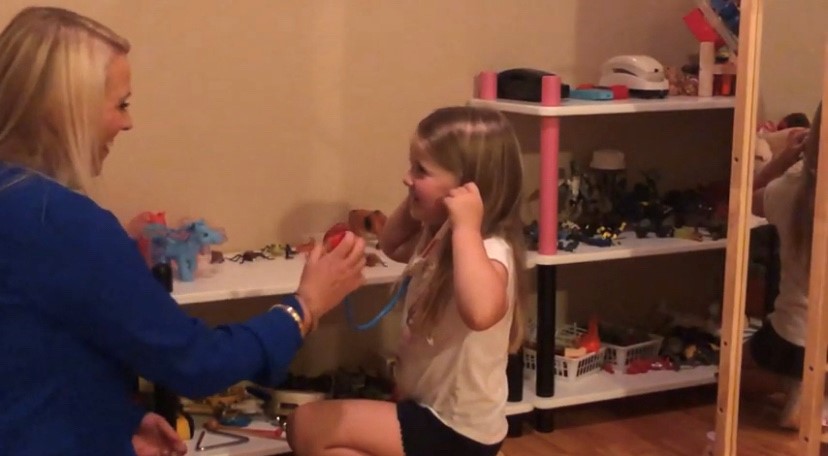
According to the National Coalition Against Domestic Violence (NCADV), one in three women and one in four men have been victims of physical violence by an intimate partner. Zoom in to look at Alabama and you’ll find 37.5% of women and 29.5% of men have experienced domestic violence in their lifetimes.
The nation acknowledges these victims, and sounds the alarm against this growing problem, during Domestic Violence Awareness Month (DVAM) each October. DVAM helps us learn what services are available in our community, and how to get help or direct others toward it.
United Way of Central Alabama (UWCA) agencies, such as SafeHouse and The Shelby County Children’s Advocacy Center, known as Owens House, work every day to respond to this crisis.
“During DVAM, SafeHouse recognizes the dedication of advocates, family members, friends, individuals, organizations and other representatives working daily to end domestic violence. DVAM is also an opportunity to engage in a conversation around a difficult topic and for others to gain a better understanding of domestic violence.”
Executive Director at SafeHouse Dotti Bailey
As the name suggests, safety is a top priority at SafeHouse. It offers comprehensive services including a 24-hour crisis line, staffed emergency shelter, counseling and, most recently, SafeShelby Sexual Assault Services. SafeShelby is a standalone medical clinic providing 24-hour services such as forensic exams and crisis intervention.
“SafeShelby was created to be a welcoming, warm, safe supportive space which can reduce anxiety, fear and trauma for those seeking services.”
Bailey
Domestic Violence Hides Out of Sight
“Domestic violence is something that very much happens in the dark. Families that we see here, who experience domestic violence in their home, are very closed off to the outside community.”
Forensic Interviewer/MDT Coordinator at Owens House Maribeth Bowman
Domestic violence weaves its way into everyday home life and is not immediately made clear. For example, most of the cases Owens House sees are child-abuse allegations. Since families are a closed system, it takes investigations by trained family advocates to bring reports of domestic violence to the surface.
“We see a lot of children who witness domestic violence. We provide forensic interviews and counseling services for those children, and then we provide family advocacy and support for their non-offending caregivers.”
Bowman

Owens House employs services that are instrumental in advocating for children in domestic violence situations. One comes in the form of a furry friend named Fitz — a service dog who accompanies children when they must testify in court or any time they need emotional reassurance.
Counselors at Owens House also prepare children, who are going to testify, using a mock courtroom. They walk them through what the process will be like step-by-step, so there will be no surprises when the court date arrives.
“They know what’s going to happen to them because, for a lot of our kids and their family members, that control has been taken away from them. We want to give them that empowerment back.”
Bowman
Not Just an Adult Issue
Often, people think domestic violence is an issue that occurs between two adults in an intimate relationship; but it affects all communities and can happen to anyone regardless of age, race, sexual orientation or gender.
Teenagers are a particularly vulnerable, and sometimes overlooked, group who experience dating violence. Guardians need to begin teaching children early what healthy relationships look like to prevent violence from happening later. Where education should start, said Bowman, is through the behavior teenagers see modeled at home.
“If someone’s in a relationship where they’re being taken advantage of, then they need to know that their children are watching and learning. That’s why we need to seek help when those things occur, so that we don’t pass that on to our next generation.”
Bowman
Seeing the Signs
Agencies focus on educating everyone, from authority figures to potential victims, on recognizing the signs of domestic violence.
“A lot of times people who are experiencing domestic violence become really good at pretending it’s not happening and covering up. It’s those little signs that they might be telling you, or showing you, that they need help.”
Bowman

Owens House trains professionals about the dynamics of child abuse, including coaching law enforcement officers about what to do when they arrive at a home with a domestic violence situation where a child is present.
Within the Shelby County School System and Pelham City School System, Owens House offers awareness classes in K through 3rd grade. Counselors teach about body safety rules and the trusted people in children’s lives with whom they can share information.
“We get many kids who say, ‘I didn’t know what was happening to me wasn’t normal until Owens House came in the school and I learned that that’s not normal.’ That’s a large part of our mission — educating the children and our community members about domestic violence so we can further prevent it.”
Bowman
Similarly, SafeHouse also educates the community on learning the signs of domestic violence through its “How to Help” workshop. It teaches attendees safe and practical ways to help if they suspect someone is experiencing domestic violence.
Help Is Here
You can find a long list of the critical services Owens House and SafeHouse offer on their websites. During DVAM and year-round, we must work together and support victims, survivors and advocates.
“We celebrate with the survivors who have escaped and are now living safe and free from violence. We honor victims who lost their lives because of domestic violence. We hope that anyone experiencing domestic violence knows they are not alone. The caring compassionate staff at SafeHouse are available to help 24/7.”
Executive Director at SafeHouse Dotti Bailey
Many UWCA partner agencies provide support for mental health and housing, as well as other resources that victims of domestic violence may find themselves needing. Find a list of partners here or call 2-1-1 to connect to these services.